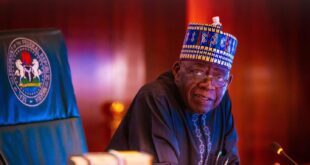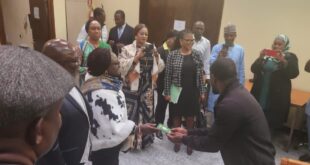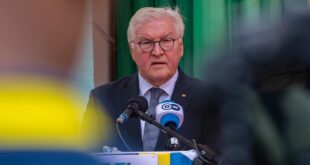The Imperative of Economic Recovery: How can the Resolution of the Sahara Issue Strengthen Africa’s Regional and Continental Integration? Experts proffer solutions in Accra
On 27 July 2021, Imani Center for Policy and Education, a Ghanaian Think Tank held a seminar, in Accra, on the topic: “The Imperative of Economic Recovery: How can the Resolution of the Sahara Issue Strengthen Africa’s Regional and Continental Integration?”.
The event brought together several Ghanaian and West African stakeholders including prominent policymakers, experts, academics, business leaders, think tank and civil society representatives from the Gambia, Ghana, Liberia, Nigeria and Senegal.
The seminar aimed to debate and discuss the African Union’s (AU) current challenges in an objective, scientific and dispassionate manner, in the context of a highly intellectual and fact-based exercise with credible experts and influential decision-makers.
Accra being the host of the African Continental Free Trade Agreement’s (AfCFTA) secretariat, the discussions centred on the challenges of regional and continental economic integration, with a special focus on the role of Regional Economic Communities. The participants highlighted the urgency of such integration and called for the full implementation of the AfCFTA and its premunition from any deadlocks that hamper the continent’s integration ideal on the ground, as stated and backed by the AU.
The debate also focused on how political deadlocks, such as the Sahara issue, are, today, a major hindrance to Africa’s economic integration. [Wikipedia: The Western Sahara conflict is an ongoing conflict between the Polisario Front and the Kingdom of Morocco. The conflict originated from an insurgency by the Polisario Front against Spanish colonial forces from 1973 to 1975 and the subsequent Western Sahara War against Morocco between 1975 and 1991. Today the conflict is dominated by unarmed civil campaigns of the Polisario Front and their self-proclaimed SADR state to gain fully recognized independence for Western Sahara].
The participants highlighted the necessity of finding a realistic and definitive solution to this longstanding issue, which can only constitute a breakthrough in Africa’s regional and continental consolidation, especially in the current context, marked by the urgency induced by the pandemic’s economic and social repercussions.
Most of the participants considered the resolution of the Sahara issue a necessary step to enhance the continent’s economic integration, in view of its current dynamics marked by the exclusivity of the United Nations process and the pre-eminence of the Moroccan Autonomy Plan as a sincere, realistic, credible, and inclusive political solution.
In the current context, marked by the urgency of economic recovery – for the unity, the integration and the overall safety of the continent – the recent incident in Guerguerat demonstrates the need to overcome political deadlocks and unproductive ideological positions.
Extensively analysed by the participants, the three-week obstruction by Polisario-led campers of a vital and strategic road – connecting Europe, North Africa and Western Africa – put neighbouring countries, the region and the whole continent’s economic security at risk. It also highlighted the importance and weight of the cooperation between Morocco and West African countries.
Furthermore, the participants examined the solutions available to the AU to rebalance its position on the issue, and fully play its neutral role in contributing to a lasting solution to a dispute that has been halting the AU’s functioning as well as the continent’s overall integration. Recognizing the current dynamic around the Sahara issue, the participants highlighted that the United Nations Security Council process could be supported by Ghana’s contribution to reach a final and realistic solution, in light of its upcoming non-permanent membership in the Security Council.
Whilst economic integration represents an emergency and a major milestone in the consolidation and development of Africa, it would be jeopardized should the AU not rationalize its institutional architecture. According to the debates, the consolidation of such architecture makes it imperative for the AU to complete its institutional reform and build its resilience against separatist and secessionist agendas, which are a real threat in numerous African countries.
The participants considered the admission into the Organisation of African Unity (OAU), then its maintenance by the AU, of a non-state entity, which has, since merely been a source of obstructions and division, as a striking example to this day.
According to the participants, the AU should correct this “cumbersome legacy” and “historical miscarriage”. Thus, the suspension, if not the expulsion, of the “SADR”, an armed group with no attributes of a sovereign State, must not be considered as a taboo or unattainable objective. Its fulfilment is not intent on being an exclusively Moroccan ambition but one that drives African States to put an end to superfluous divisions, and to stop the instrumentalization of an organization which is supposed to serve a Pan-African ideal and goal.
Report distributed by African Media Agency (AMA) on behalf of Imani Center for Policy and Education.
 THE AFRICAN COURIER. Reporting Africa and its Diaspora! The African Courier is an international magazine published in Germany to report on Africa and the Diaspora African experience. The first issue of the bimonthly magazine appeared on the newsstands on 15 February 1998. The African Courier is a communication forum for European-African political, economic and cultural exchanges, and a voice for Africa in Europe.
THE AFRICAN COURIER. Reporting Africa and its Diaspora! The African Courier is an international magazine published in Germany to report on Africa and the Diaspora African experience. The first issue of the bimonthly magazine appeared on the newsstands on 15 February 1998. The African Courier is a communication forum for European-African political, economic and cultural exchanges, and a voice for Africa in Europe.






















